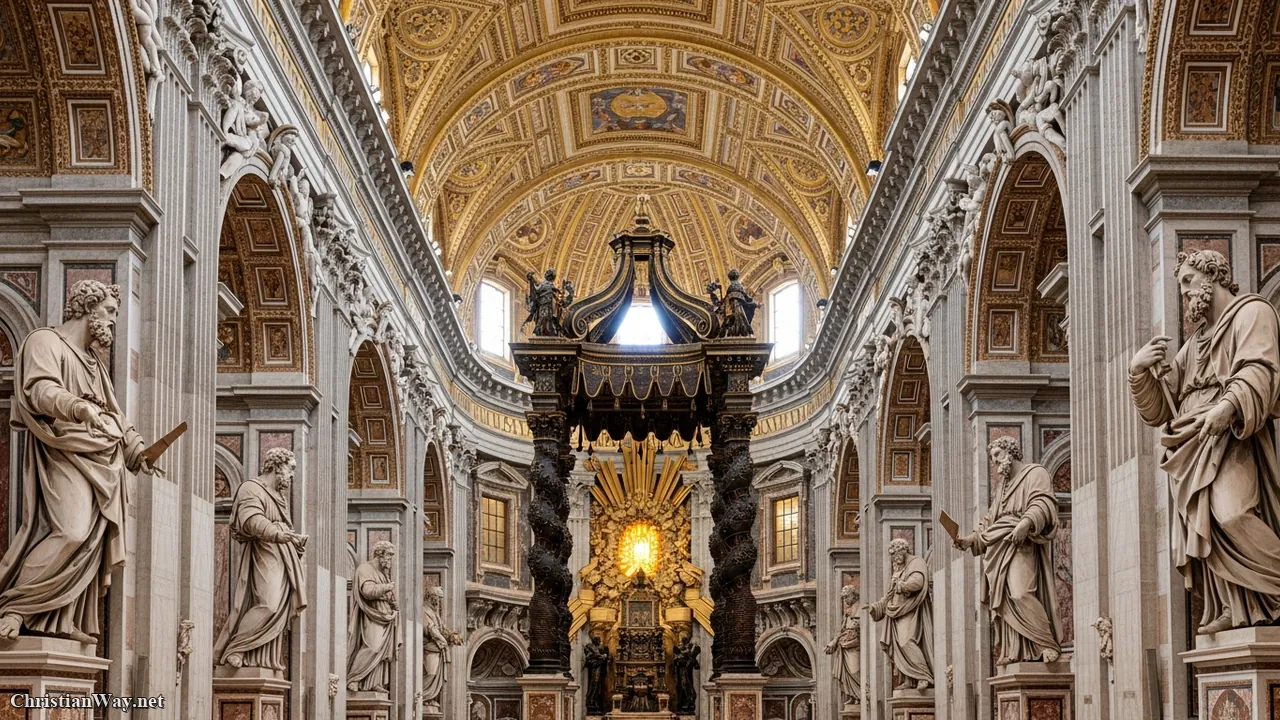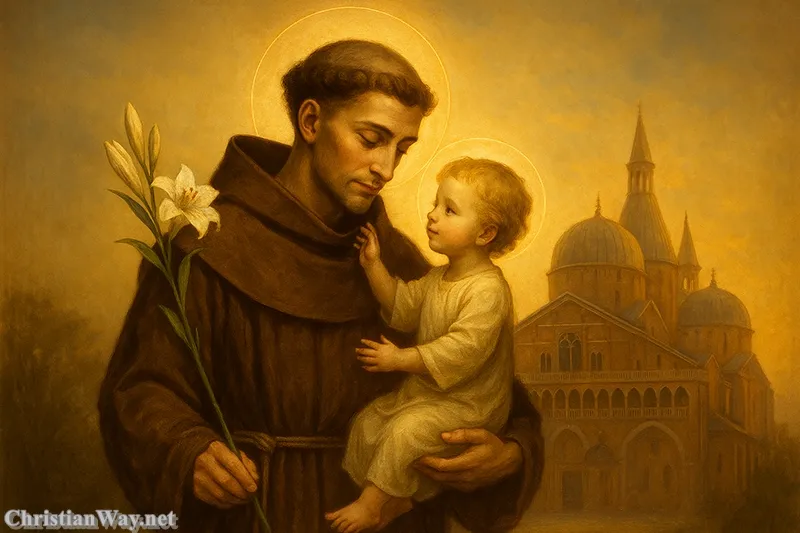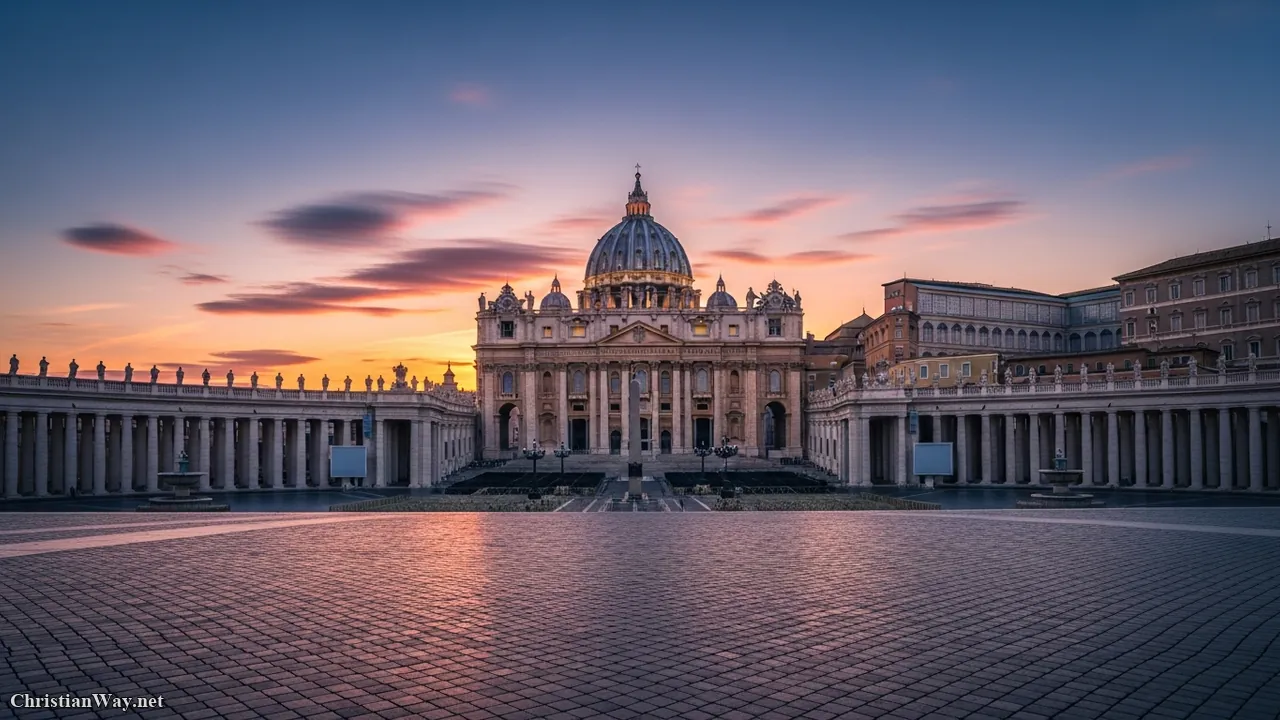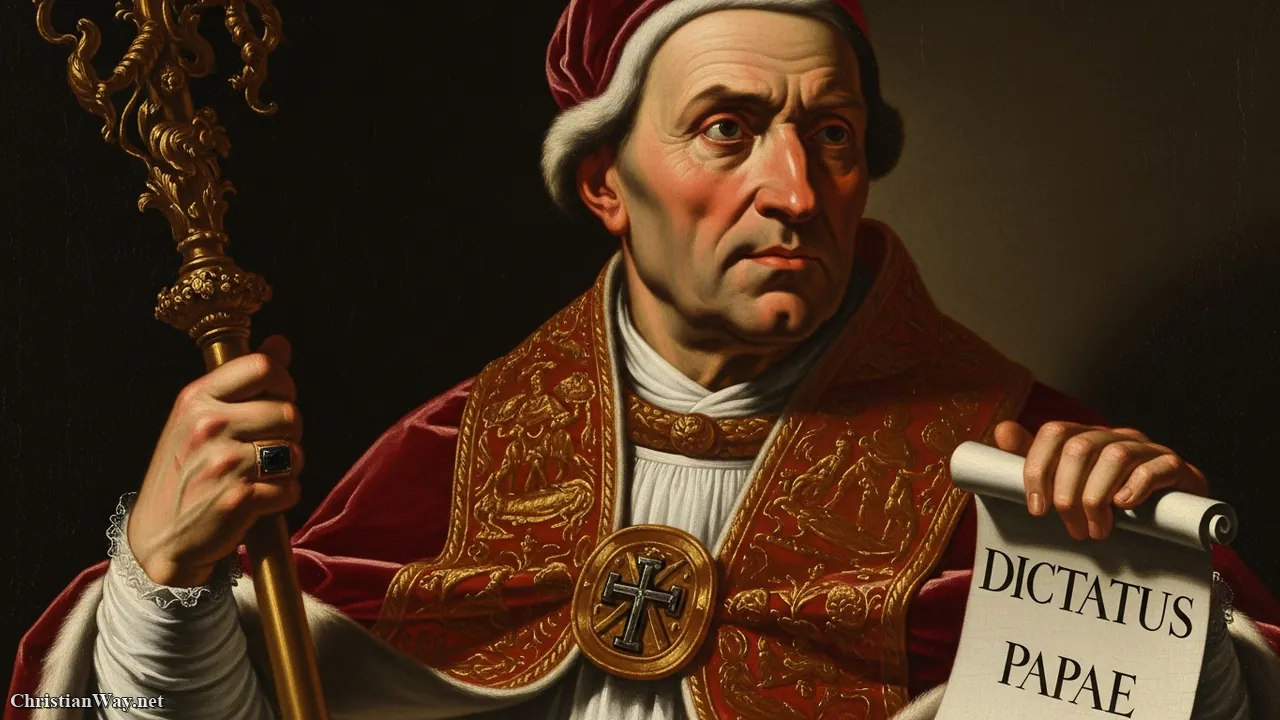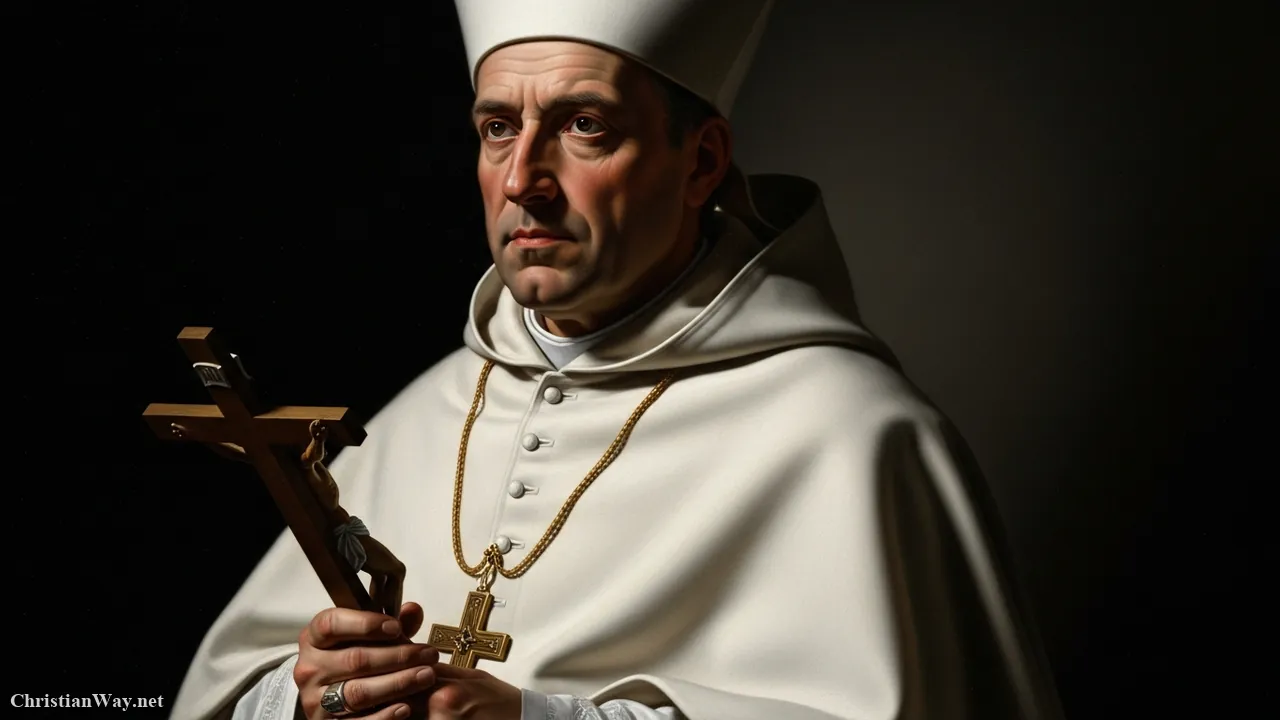Every continent bears the marks of holiness, but Africa holds a particularly ancient and radiant light in the story of Christianity. Long before cathedrals rose in Europe, faith was already alive in the deserts of Egypt, the hills of Carthage, and the valleys of Ethiopia. From this land came great teachers, fearless martyrs, and holy men and women who carried the Gospel with courage and devotion. Their witness helped form the very foundation of the Church we know today.
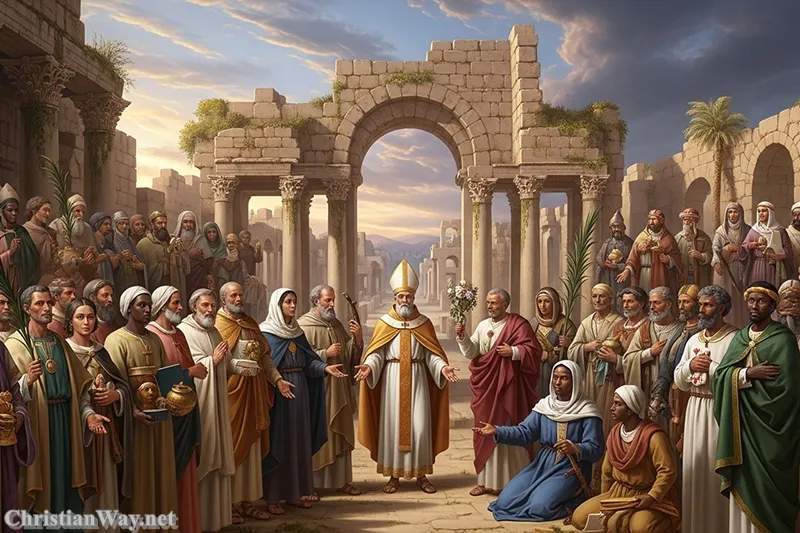
Dear friends in Christ, this list honors those African saints and early Christian martyrs who lived the Gospel in the midst of persecution, cultural tension, and great transformation. Their faith was not abstract—it was tested by fire, strengthened by love, and crowned with eternal glory. Through them, we glimpse how deeply Africa’s soul has contributed to the universal Church.
1. St. Augustine of Hippo (354–430, Algeria)
One of the greatest theologians in Christian history, St. Augustine was born in Tagaste (modern Algeria). His Confessions and City of God continue to shape Christian thought worldwide. Once a restless seeker, Augustine found peace in Christ through the prayers of his mother, St. Monica. As Bishop of Hippo, he defended the faith against heresies and offered a vision of grace that continues to inspire generations.
2. St. Monica (332–387, Algeria)
The mother of St. Augustine, St. Monica is remembered as the model of perseverance in prayer. Her tearful intercession led her son to conversion, and her deep faith remains a sign of hope for Christian parents everywhere. Born in North Africa, she lived through the tensions of a pagan culture yet never ceased to trust in God’s mercy.
3. St. Cyprian of Carthage (c. 200–258, Tunisia)
A bishop and martyr, St. Cyprian guided the Church in Carthage during fierce Roman persecution. He emphasized unity among Christians and the sacred authority of bishops. His writings on Church discipline and forgiveness still echo in Catholic tradition. Executed by sword for refusing to renounce his faith, he proclaimed, “Thanks be to God!” as his final words.
4. St. Perpetua and St. Felicity (d. 203, Tunisia)
These two heroic women, one a noblewoman (Perpetua) and the other a slave (Felicity), were imprisoned together for their Christian faith. Their diary—The Passion of Perpetua and Felicity—is one of the earliest and most moving testimonies of martyrdom. Facing wild beasts in the amphitheater, they embraced death with serenity, embodying the equal dignity of all believers in Christ.
5. St. Anthony the Great (251–356, Egypt)
Known as the Father of Monasticism, St. Anthony retreated into the Egyptian desert to seek God in silence and prayer. His holiness drew countless followers who formed the first monastic communities. Through his example, the Christian world learned the value of solitude, simplicity, and spiritual warfare. St. Athanasius’ Life of Anthony spread his fame across the continents.
6. St. Athanasius of Alexandria (c. 296–373, Egypt)
A towering figure in the defense of Christian orthodoxy, St. Athanasius stood firm against the Arian heresy, which denied the divinity of Christ. As Bishop of Alexandria, he endured multiple exiles for proclaiming that Jesus is true God from true God. His faith preserved the heart of the Creed we still profess today.
7. St. Catherine of Alexandria (3rd–4th century, Egypt)
A young scholar and noblewoman, St. Catherine converted to Christianity and boldly confronted the Emperor Maxentius. Her wisdom confounded pagan philosophers, and many were converted by her witness. She was tortured on a spiked wheel—now known as “Catherine’s wheel”—and martyred for her faith. She remains a patroness of scholars and philosophers.
8. The Forty-Nine Martyrs of Carthage (5th century, Tunisia)
During the Vandal persecution under Arian rule, forty-nine Christians of Carthage were martyred for their unwavering faith in the divinity of Christ. Their blood became the seed of renewed faith in North Africa. Their witness reminds the Church that truth, even when silenced for a time, rises again with power.
9. St. Maurice and the Theban Legion (3rd century, Egypt–Switzerland)
St. Maurice, an officer of the Roman army from Thebes (Upper Egypt), led a legion of Christian soldiers. Ordered to offer sacrifices to pagan gods, they refused. The entire legion—nearly 6,600 men—was executed in Agaunum (now Saint-Maurice, Switzerland). Their story spread throughout Europe, inspiring courage and fidelity among countless believers.
10. St. Moses the Black (330–405, Egypt)
Once a violent bandit, Moses encountered grace through the example of desert monks. He repented and became one of the great fathers of the Egyptian desert. Known for his humility and wisdom, he was martyred by invaders who attacked his monastery. St. Moses shows that no past is beyond redemption when touched by divine mercy.
11. St. Charles Lwanga and Companions (d. 1886, Uganda)
Charles Lwanga, a young court official, led a group of Ugandan converts who were executed for refusing to renounce their faith and submit to immoral demands from King Mwanga. Burned alive at Namugongo, they died singing hymns. Their courage awakened a new Christian dawn in Africa and made Uganda a center of vibrant Catholic faith.
12. St. Josephine Bakhita (1869–1947, Sudan–Italy)
Born in Sudan and sold into slavery, Bakhita endured unspeakable suffering until she found freedom and faith in Christ. Baptized in Italy, she became a Canossian Sister, known for her serenity and forgiveness. She said, “If I were to meet my captors, I would kneel and kiss their hands, for through them I found God.” Her life is a radiant testimony to grace and mercy.
13. St. Frumentius (4th century, Ethiopia)
Called “the Apostle of Ethiopia,” Frumentius was shipwrecked as a youth and brought to the Ethiopian court. He later became a bishop, establishing the first Christian community in the region. His mission laid the foundation for the Ethiopian Orthodox Church, one of the most ancient branches of Christianity.
14. St. Mark the Evangelist (1st century, Libya–Egypt)
Tradition holds that St. Mark, author of the Gospel of Mark, preached the Good News in North Africa and founded the Church of Alexandria. He was martyred by pagans who opposed his message. His Gospel, concise and dynamic, reflects the vitality of the earliest Christian witness in Africa.
15. St. Simon of Cyrene (1st century, Libya)
The man compelled to carry the Cross of Jesus (Luke 23:26) was from Cyrene, in modern-day Libya. Though little is known about his life afterward, the Gospel mentions his sons Alexander and Rufus, suggesting that his family became early Christians. Simon’s encounter with Christ on the road to Calvary symbolizes Africa’s deep participation in the mystery of redemption.
16. The Martyrs of Scillium (180 AD, Tunisia)
These twelve Christians were the first recorded martyrs of Africa. When asked to renounce Christ and swear by the emperor, they replied, “I am a Christian.” Their faith marked the dawn of the Church’s witness on African soil and inspired generations to stand firm in persecution.
17. St. Clement of Alexandria (c. 150–215, Egypt)
A theologian and philosopher, Clement bridged faith and reason. Teaching at the Catechetical School of Alexandria, he sought to show how Greek wisdom could lead to the truth of the Gospel. His writings profoundly influenced Christian thought on the harmony of faith and intellect.
18. St. Pachomius (292–348, Egypt)
A soldier turned monk, Pachomius founded the first communal monasteries in Egypt, establishing a rule of life that inspired later monastic traditions, including that of St. Benedict. His vision of community transformed Christian spirituality, uniting prayer and service in a life of discipline and love.
19. St. Melania the Elder and St. Melania the Younger (4th–5th century, North Africa)
These noble Roman women spent time in North Africa, supporting the Church during persecution and founding monastic communities. Their generosity and deep asceticism made them pillars of early Christian charity and spirituality.
20. St. Augustine’s Companions – The African Fathers
Many bishops and theologians of Africa labored alongside St. Augustine: St. Alypius, St. Possidius, and St. Fulgentius of Ruspe among them. Their writings shaped the Western theological tradition and carried the light of African Christianity into the wider world.
Faith in the Soil of Africa
From Egypt’s deserts to Carthage’s coast, from Ethiopia’s mountains to Uganda’s plains, the African saints form a living tapestry of courage, intellect, and holiness. They remind us that Africa was not a distant frontier of faith but one of its earliest homes. Through martyrdom and contemplation, through teaching and mercy, these men and women became the “living stones” of the Church.
Their example speaks powerfully today. In a world divided by race, power, and wealth, they remind us that holiness knows no border. The same Spirit who filled the martyrs of Scillium fills every heart that says “Yes” to Christ. Africa continues to give to the Church—its joy, its music, its steadfast faith, its hope amid trials.
Reflect and Pray
Let us thank God for the saints and martyrs of Africa—those whose names are known and those known only to God. May their witness renew our own courage to live the Gospel with integrity, mercy, and joy.
Prayer:
Lord Jesus Christ, You crowned the martyrs of Africa with the glory of Your Cross and filled Your saints with the fire of divine love. Grant that we, following their example, may remain steadfast in faith and radiant in charity. May the soil of our hearts bear the same fruit of holiness they bore in their time. Through Christ our Lord. Amen.
— Fr. John Matthew, for Christian Way
